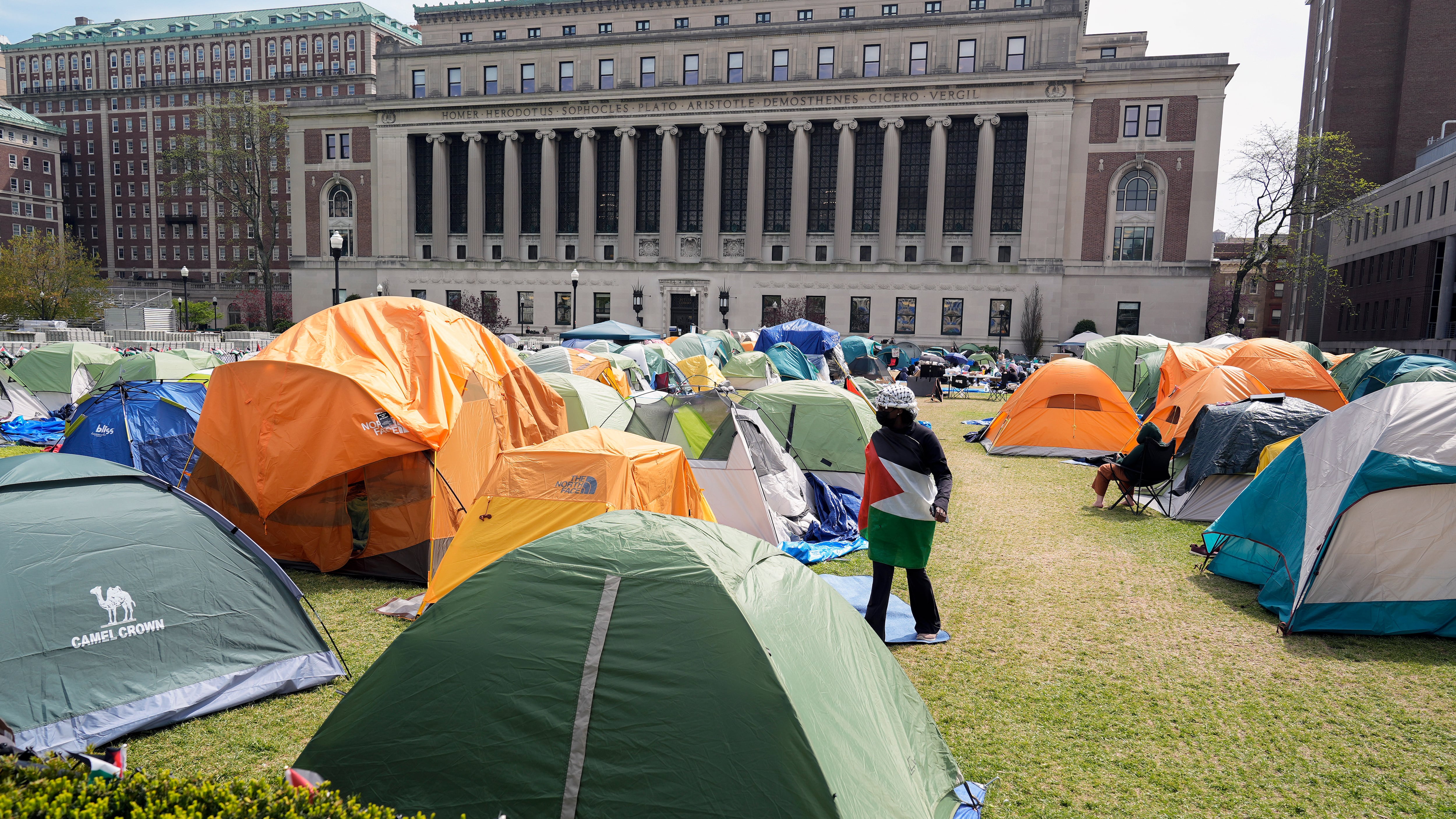The Trump administration announced on Friday that $400 million of federal funding would be stripped from Columbia University for failing to protect its Jewish students from antisemitism. With USC listed as one of the ten schools to be visited by the federal Task Force to Combat Antisemitism along with Columbia, the university could face similar repercussions.
The president’s list, released on February 28, comprised ten universities that “have experienced antisemitic incidents since October 2023″ and will be visited by the Task Force: Columbia, Harvard University, George Washington University, UC Berkeley, USC, UCLA, New York University, Johns Hopkins University, University of Minnesota and Northwestern University.
On Monday, the U.S. Department of Education Office for Civil Rights announced that it sent letters to 60 universities across the country warning of potential “enforcement actions” if they do not protect their Jewish students. The announcement cited Title VI of the Civil Rights Act of 1964, which prohibits discrimination based on “race, color and national origin” in any program that receives federal funding.
Annenberg Media obtained the letter sent to President Carol Folt yesterday by the Office for Civil Rights. It warned that federal funding could be pulled if the university fails “to take sufficient measures to address antisemitic harassment based on shared ancestry.” It also referenced Columbia’s loss of $400 million in federal funding.
“We look forward to responding to [the] Office for Civil Rights’ letter and sharing with them everything we have done to create a welcoming and non-discriminatory campus environment for all members of our community,” a USC spokesperson said in a statement when asked how the university plans to comply with the order to avoid the “enforcement actions” mentioned in the letter.
In a press release published on March 7, the Department of Justice, Department of Health and Human Services, Department of Education and the U.S. General Services Administration — forming the federal Joint Task Force to Combat Anti-Semitism — announced that the $400 million in federal grants were withdrawn from Columbia “due to the school’s continued inaction in the face of persistent harassment of Jewish students.”
“We are reviewing the announcement from the federal agencies and pledge to work with the federal government to restore Columbia’s federal funding,” a Columbia University spokesperson said in an email. “We take Columbia’s legal obligations seriously and understand how serious this announcement is and are committed to combatting antisemitism and ensuring the safety and wellbeing of our students, faculty, and staff.”
Pro-Palestinian protester, former Columbia graduate student and lead negotiator for Columbia University Apartheid Divest, Mahmoud Khalil, was arrested by Immmigrations and Customs Enforcement (ICE) on Saturday night on the grounds of “anti-American” action.
Despite being a green card holder and married to a U.S. citizen, ICE, under President Trump, attempted to deport Khalil. The motion was blocked by a federal judge in Manhattan on Monday so that the judge could review the legality of the arrest.
“This is the first arrest of many to come,” Trump posted on social media on Monday. “We know there are more students at Columbia and other universities across the country who have engaged in pro-terrorist, anti-semitic, anti-American activity, and the Trump Administration will not tolerate it.”
In a post on Truth Social, Trump said, “Agitators will be imprisoned/or permanently sent back to the country from which they came. American students will be permanently expelled or, depending on the crime, arrested.”
On Sunday night, Secretary of State Marco Rubio posted on X that the Trump administration “will be revoking the visas and/or green cards of Hamas supporters in America so they can be deported.”
Dave Cohn, the executive director of USC Hillel, said that he had observed on-campus antisemitism in the past. But with the Task Force to Combat Antisemitism set to visit USC, Cohn stressed a student-first approach.
“I think that we should use every tool at our disposal to benefit the student experience,” Cohn said in a March 3 interview with Annenberg Media. “And if this Task Force can serve as another productive partner in that effort of working collaboratively with the university administration, with our Hillel team, with our students to uplift the student experience, then I welcome the opportunity to do that.”
Cohn said he would be an “eager participant in the process” of talking to the Task Force to support students.
Specific details of the Task Force’s visit to USC are still unclear.
Paul Lerner, a history professor at USC, said he believes antisemitism needs to be addressed but is worried about how these conversations will be framed.
“I believe that antisemitism is best addressed in a framework that works against other kinds of hatreds as well, including racism, homophobia, Islamophobia and others,” he said in an interview with Annenberg Media on March 5. “It should be the culture of a university where we should be able to discuss, disagree, dissent, but to do it freely, without fear of retribution.”
